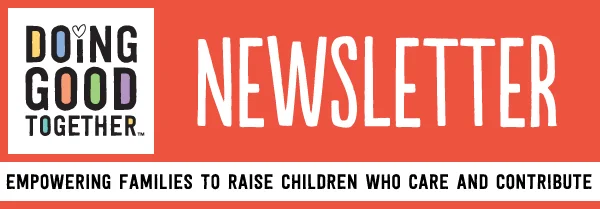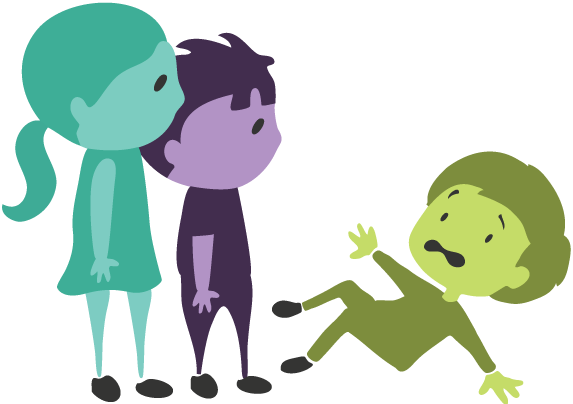RAISING "UPSTANDING" CHILDREN
The Dalai Lama observed that the greatest challenge of our time is that we're raising a generation of passive bystanders. It can be difficult to take action in support of our values and beliefs, especially when it involves some personal risk. Those who do stand up are most often from families that nurtured the qualities of altruism and empathy. If you would like your children to be among those admirable people with the courage to be upstanding, rather than bystanding, here are some strategies to help them along.
-Jenny Friedman, Executive Director
BE AN UPSTANDER
Make a Difference.....
Tell your children about the bystander effect. This is the social phenomenon that makes it difficult for people to intervene when others around them aren't getting involved. Brainstorm why people might be hesitant to help out when they see bullying or teasing, or just notice someone in need of assistance. Could it be fear? Self-consciousness? Wanting to wait for someone else to take charge? Talk about how to lessen the intimidation we all feel in those situations.
Model getting involved. Research indicates that children who've seen adults and other kids stand up in difficult situations are more likely to do so themselves. If you help out the woman who dropped her groceries, show compassion to victims of unkind behavior, and speak up when someone tells a racist joke, your children will be inclined to model your actions. When you do "stand up," talk to your children about why you intervened and how it felt.
Nurture your child's "heroic imagination." Children are most likely to act altruistically, and even heroically, if they feel their parents would expect it of them. Talk and read about real-life heroes and the difference they've made. Talk about a time when you did something heroic to help another creature.
Empower your child to intervene. Let your children know that intervening makes a difference. Even if they are too frightened, for example, to confront a bully, remind them that there are "quiet" ways to help. They can report the incident to a trusted adult, or comfort the victim by simply standing next to him or her, sending a kind text, calling to voice support, or sitting with him or her at lunch. Explain that each of these is very meaningful...and brave.
Foster caring and social responsibility in your children. Researcher Samuel Oliner, who studied the "rescuers" of Jews in Nazi Europe, discovered that those who displayed "heroic kindness" were most often raised by families that emphasized compassion, inclusiveness and an "ethical responsibility to all life." If you practice kindness with your children each day, they're more likely to act heroically when the need arises.
BOOSTING MORAL COURAGE
Talk About It...
Play "What Would You Do?" at the dinner table. Present the scenarios below (or ones you make up). Talk together about what, if anything, you would say or do in each situation. If you would "upstand," what form would this take? If you would avoid getting involved, explain your reasons. (Be sure to talk about why it's sometimes best not to intervene.) Choose scenarios that are appropriate for your child's age and developmental level.
A woman in front of you in the grocery store checkout line discovers she is short one dollar after her groceries have been rung up.
Your friend accidentally knocks over his or her milk, spilling it all over the school lunch table.
An older student starts making fun of your friend's new shoes.
You see a young man with Down Syndrome bussing tables at a local restaurant. You notice that one table of people laughs at him and call him names.
You see someone harassing a homeless man.
Learn About It.....
These books provide insights into the science of kindness and compassion.
The Juice Box Bully: Empowering Kids to Stand Up for Others by Rob Sornson and Maria Dismondy. Students in one classroom have pledged to stand up for one another and to earnestly live by the golden rule. When the new kid starts to cause trouble, the classmates challenge one another to stay true to their pledge, ultimately teaching their new classmate what it means to be part of their community.
INSPIRATION
"We must take sides. Neutrality helps the oppressor, never the victim. Silence encourages the tormentor, never the tormented."
— Elie Wiesel, writer, professor and activist





